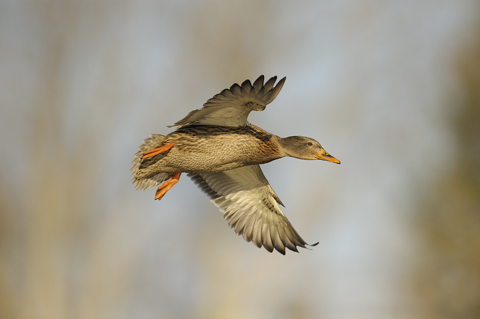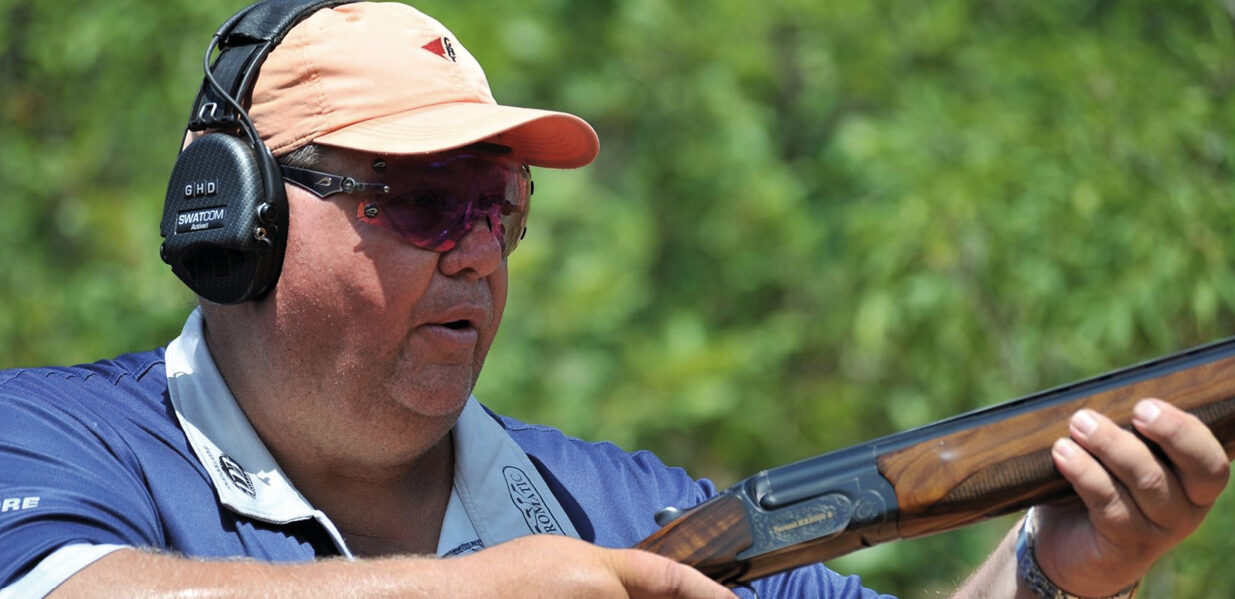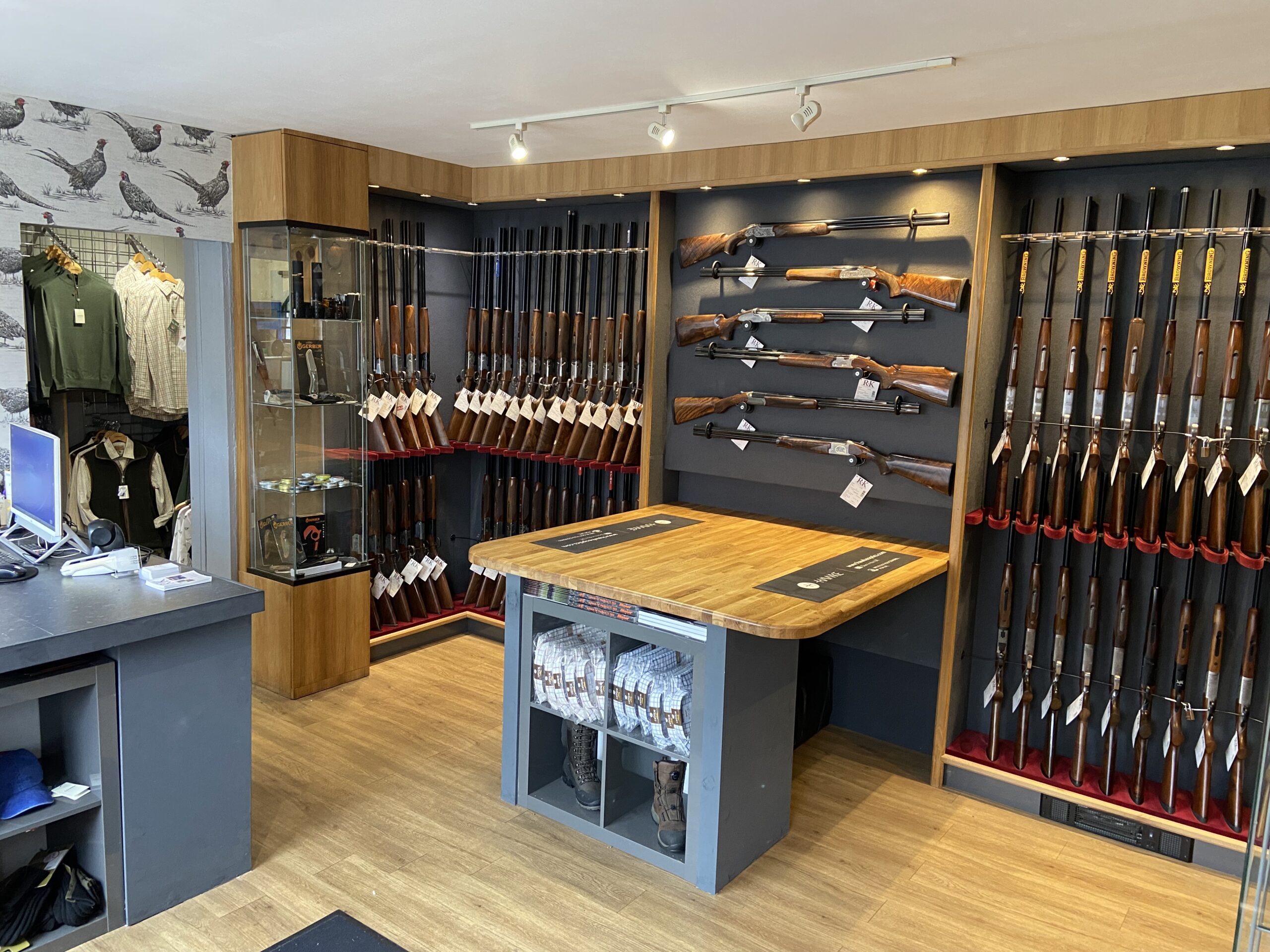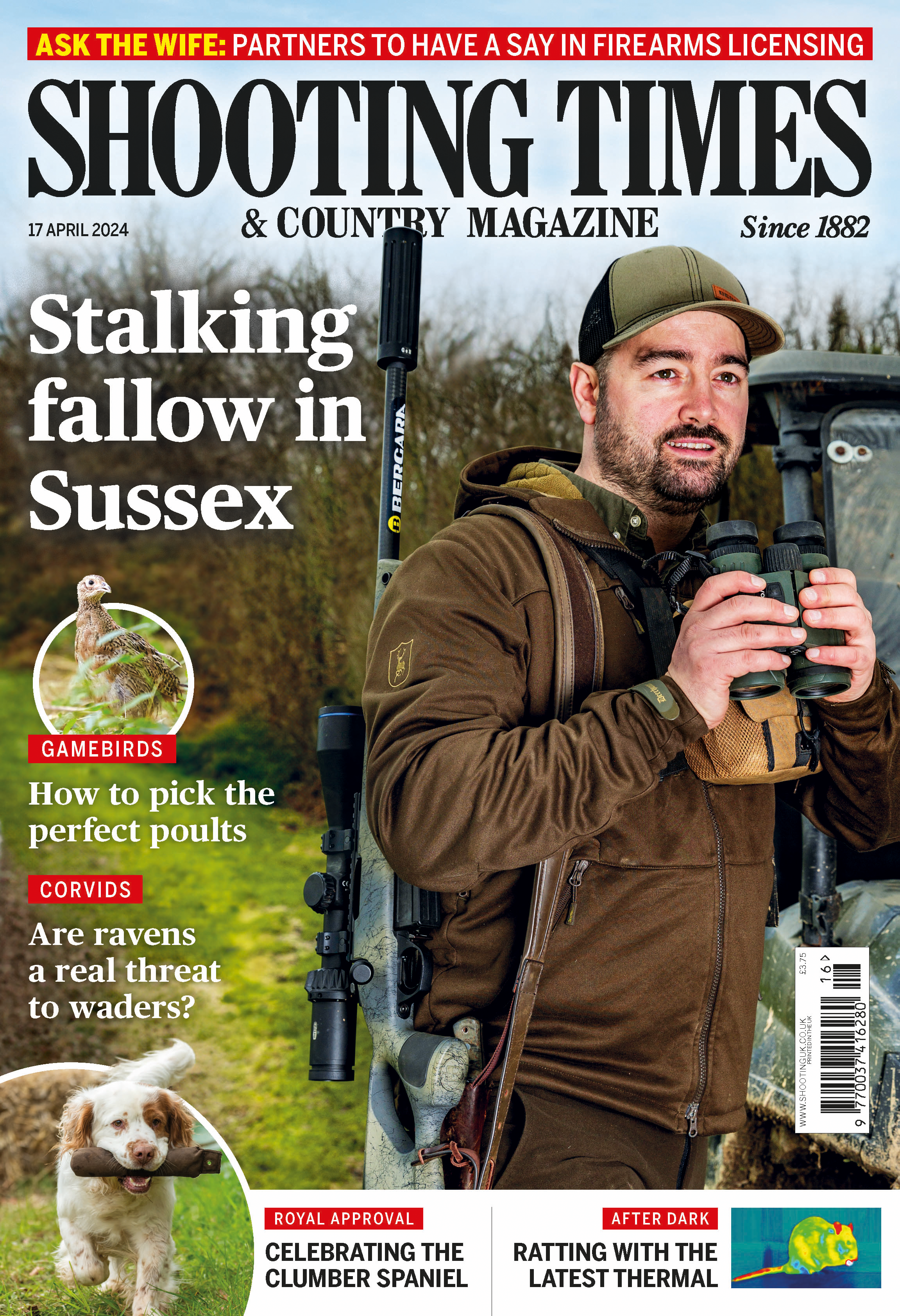Fenland wildfowling on September 1

What is so special about September 1? What induces a normally sane individual to get out of bed in the middle of the night on this particular date? For the duck shooter, the first response to that question might be that after a six-month layoff, a new season cannot come soon enough. That is true, but perhaps for most, the underlying reason is the knowledge there will be more guns out than on any other day in the season. This means that for an hour or two after first light there are likely to be more birds on the move than usual, increasing the chance of putting something in the bag. Even just one day later the circumstances will not be the same.
Some of us will have kept our eye-in during the spring and summer whilst shooting pigeons, but great sport though that can be, for the wildfowler nothing can compare with time spent in duck country. All right, the first morning is unlikely to provide real wildfowling weather; in fact September is generally a warm, settled month. Nevertheless, it is good to know we shall soon be out with the gun again, hidden in some rush-filled dyke or behind a convenient marsh gate to await our favourite quarry. For others the setting might be a stubble field or a muddy creek, but the thrill will be the same.
By August the sportsman becomes restless and the evenings will find him roaming the local hotspots watching and noting any movement of wild duck. On the coast, this early, things are more uncertain, but for the man on the spot there is always a chance. As a case in point, I experienced a most extraordinary tide flight of mallard and teal the very first time I set foot on a certain Norfolk saltmarsh. It was the September of my second season and I thought I’d cracked it. I had found a place that was heaving with duck. What sport I was going to have. Discovery that this set of circumstances was exceptional soon followed! But it can happen.
Local knowledge
The happy hunting grounds round our way are on Whittlesey Wash. Until the 1980s the local Wildfowlers Association rented the whole of what is known as the Low Wash. This is a 600-acre block of cattle marshes intersected with dozens of water-filled dykes and enclosed on the northern edge by the tidal River Nene. A long drove cuts straight down the middle of the Wash. The dykes to the south of it are half a mile long and 100-200 yards apart, framing fields about 10 acres in size.
In the early hours of September 1, local fowlers would venture down the drove in a race to claim the chosen places. Cars, vans, bicycles and once, even a Fergie tractor bumped and rattled over the rough track. Having reached your likely spot you would walk on 100 yards, cross the field to the neighbouring dyke, walk back along that for 200 yards, and then re-cross the field until the original hiding place was reached. The gunner then knew that there was no-one within 100 yards in any direction. Anybody arriving afterwards would be heard and warned of your location with a flash of a torch or a cough. It worked well as everybody knew the form. Ears would pick up the sound of later arrivals. The brush of long boots through the dew-soaked vegetation, the soft murmur of voices or the not so soft: “Get back here, Rover!”
A duck for everyone?
After a while everyone would settle down but soon the sudden flare of a match would penetrate the darkness, and there would be the glow of cigarette ends dotted here and there. Well, daybreak was a long way off and burning a bit
of baccy was the norm in those days. This was the time when a flask of hot coffee was also enjoyed, for although later in the morning it might be sunny and warm, those grey early hours can be pretty cool.
 September 1 sees the start of the duck season – happy times for the fowling fraternity.
September 1 sees the start of the duck season – happy times for the fowling fraternity.
At long last, as the first lighter patch appeared in the eastern sky, the flattened rushes and willow herb forming the hide were checked and the gun loaded. Almost at once it seemed, the first shot of the day echoed off the riverbanks. Either they were shooting at sound or they had far better eyesight than mine. Anyway, we were off and the morning progressed with varying degrees of luck. There were usually about 30 guns out. I don’t suppose everyone got a shot, but you were unlucky if you didn’t because the duck were coming to the dykes intending to rest for the day. As most of the dykes were manned, the birds were kept on the move. Around 8.30am, people would be leaving for a late start at work. The duck soon found the unoccupied dykes and things were considerably quieter. Apart from duck there were always snipe and passing curlew to add variety to the bag. As a rule we would have a duck to carry home. In a good year it was possible to collect half a dozen or more.
Just like Moses!
Over the years there were some unusual events, like the time when a fowler took his four-year-old son for the flight. The little chap fell asleep so father left him and moved further along the dyke. Old Jack Hailstone the Wash Shepherd had come down to move some cattle and found the child. Jack told me later that he didn’t notice the father at first and thought the child had been abandoned. He said: “I come acrorss this little ole boy. He were tucked up in the rushes just loike Moses!”
That reminded me of a song that was sung in our pub of a Friday night. One verse from the song went like this:
“Pharaoh had a daughter, she had a winning smile, she found the baby Moses in the rushes by the Nile, she took him home to father and he believed the tale, which is just about as probable as Jonah and the whale.”
I cannot disclose the title of the song as nowadays it would be considered politically incorrect!
The RSPB and the lead ban
The 1980s were a turning point. It became illegal to shoot curlew and other waders, and from a local point of view we began to lose our shooting as the RSPB bought up Washland. The wildfowling club managed to buy two fields, but eventually most of the Low Wash was lost to us. The club owns and rents a lot more Washland, but the shooting over our prime area is now severely curtailed. There is still ample room for the guns that turn out on September 1, but to secure a favoured place, earlier rises are necessary. Some even go down the night before and camp.
The prohibition of the use of lead shot on wetlands was the next major change. I am still not convinced it was necessary, but nowadays I take a more philosophical view, which is at least better for my blood pressure. I won’t use steel, but get on all right with the latest bismuth ammunition. If I have an average day fowling, a couple of shots will not break the bank. If I have a good day, firing say 30 shots, then I’m prepared to pay for the privilege. Most fowlers would be pleased to pay £25 for the opportunity to fire that many shots at duck, so what’s the difference? A total lead ban would be a different matter entirely. Proposals for that would smack more of an attack on the sport of shooting rather than concerns for the birds. But, it’s not all bad news. There are perhaps more fowl throughout the season on our Wash and feral greylag offer opportunities from the start.
Anticipation and a sleepless night before September 1
For all the changes, even after 55 years, the old magic remains and the alarm will still be set for 3am on September 1. Sleep doesn’t come easily to the fowler on the eve of his special day because the mind is too active. Have I decided on the best place after all? What if the alarm fails to go off? The latter thought is not conducive to relaxation! One tosses and turns as the hours are tolled off by the chimes of the church clock until it seems sleep will never come. Then it does and the next moment we are jarred awake by the alarm. That moment of woolly headedness is soon dispelled once we are downstairs sinking a hot drink whilst pulling on various items of kit. Stepping outside into the cool morning air we are greeted by a wildly enthusiastic dog. Did I really think that last night’s preparations had gone unnoticed by that canny companion?
Away we go in order to arrive well before daybreak, but the breeze fanning the face and tugging at the coat is exhilarating. Who cares if there is an hour and a half to wait? Before long dawn will break, wings will whisper overhead, the grip on the gun will tighten and a new season will begin. Then, the stink of methane as the dog disturbs the dyke mud, the gratifying thump of the first duck down and the feel of the oily feathers as one smooths the breast of a plump mallard. Yes, a new season, with all the as yet unknown pleasures of sights and sounds still to come. That is the nub of it really, isn’t it? The excitement of the first is largely due to anticipation.
For more features click here








